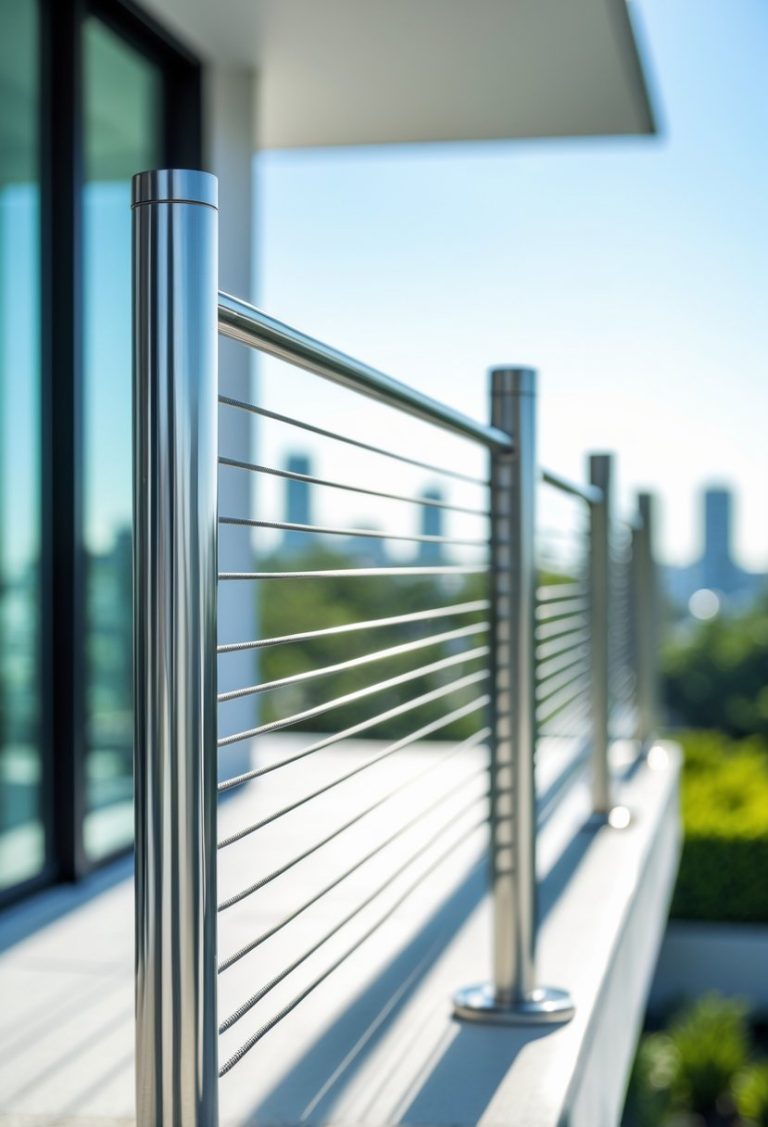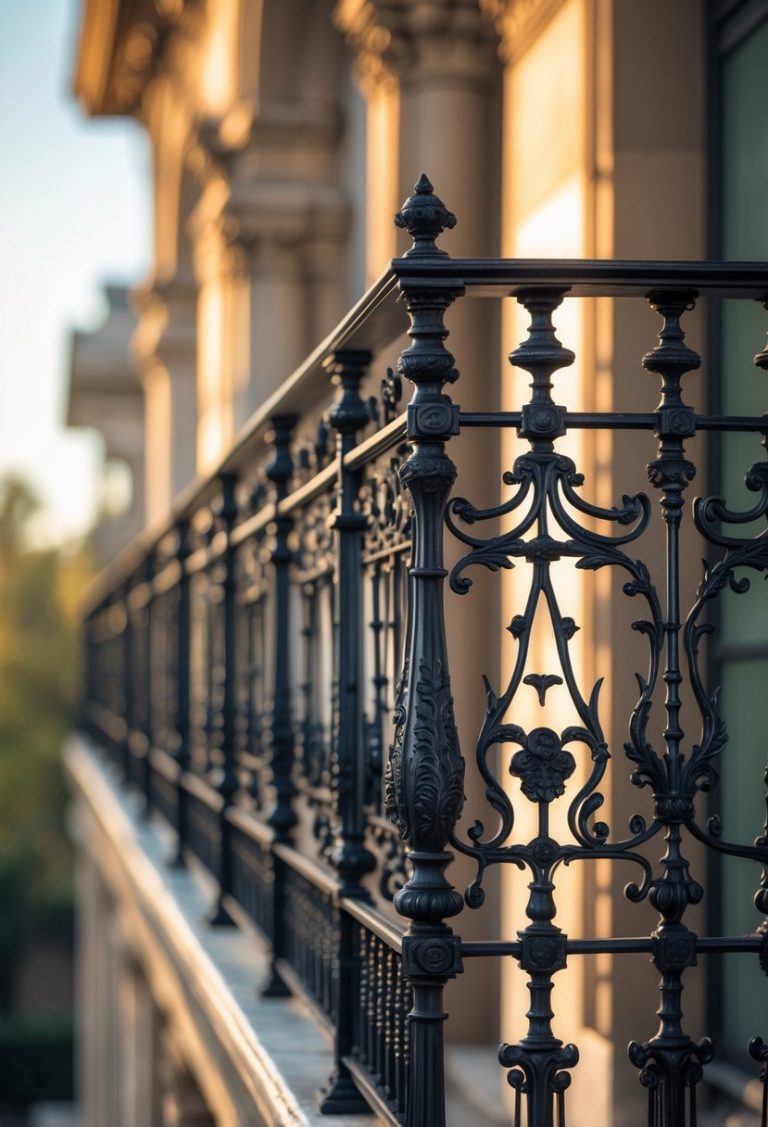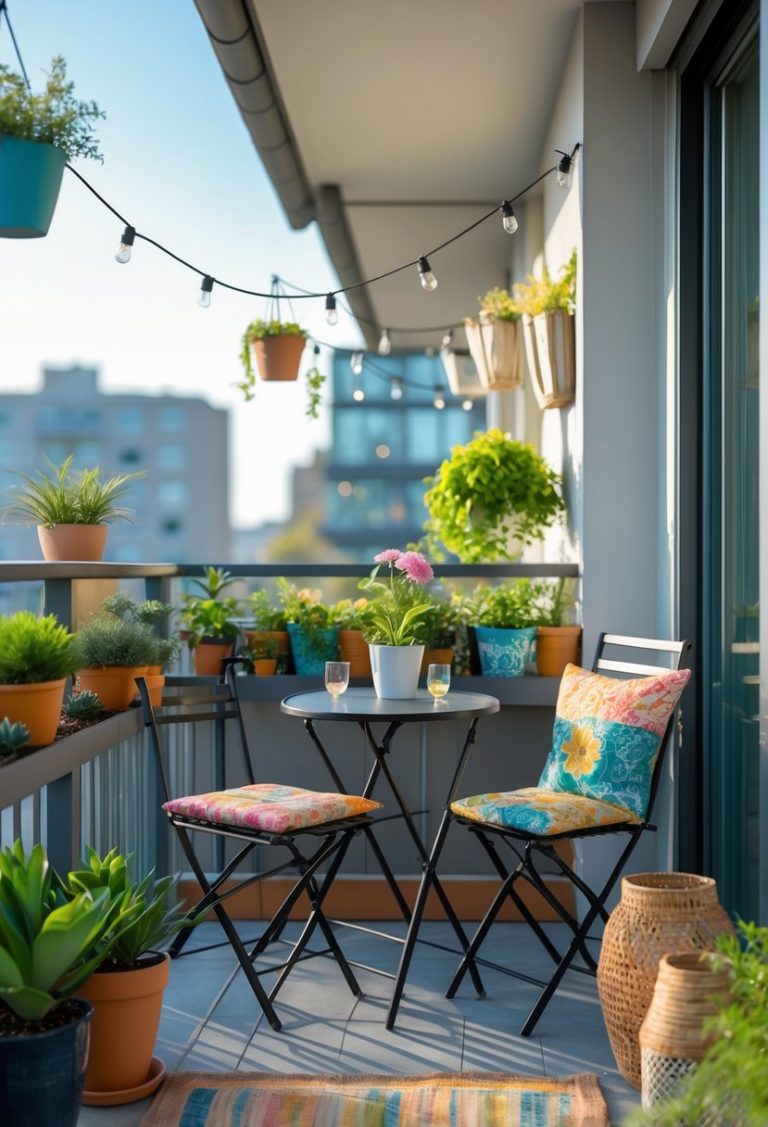Balcony Privacy Ideas: 7 Effective Solutions for a Secluded Outdoor Space
Many people want to enjoy their balconies without feeling watched by neighbors or passersby. Creating privacy on a balcony can make the space more comfortable and relaxing. It helps people use the area for rest, work, or social time without distractions.
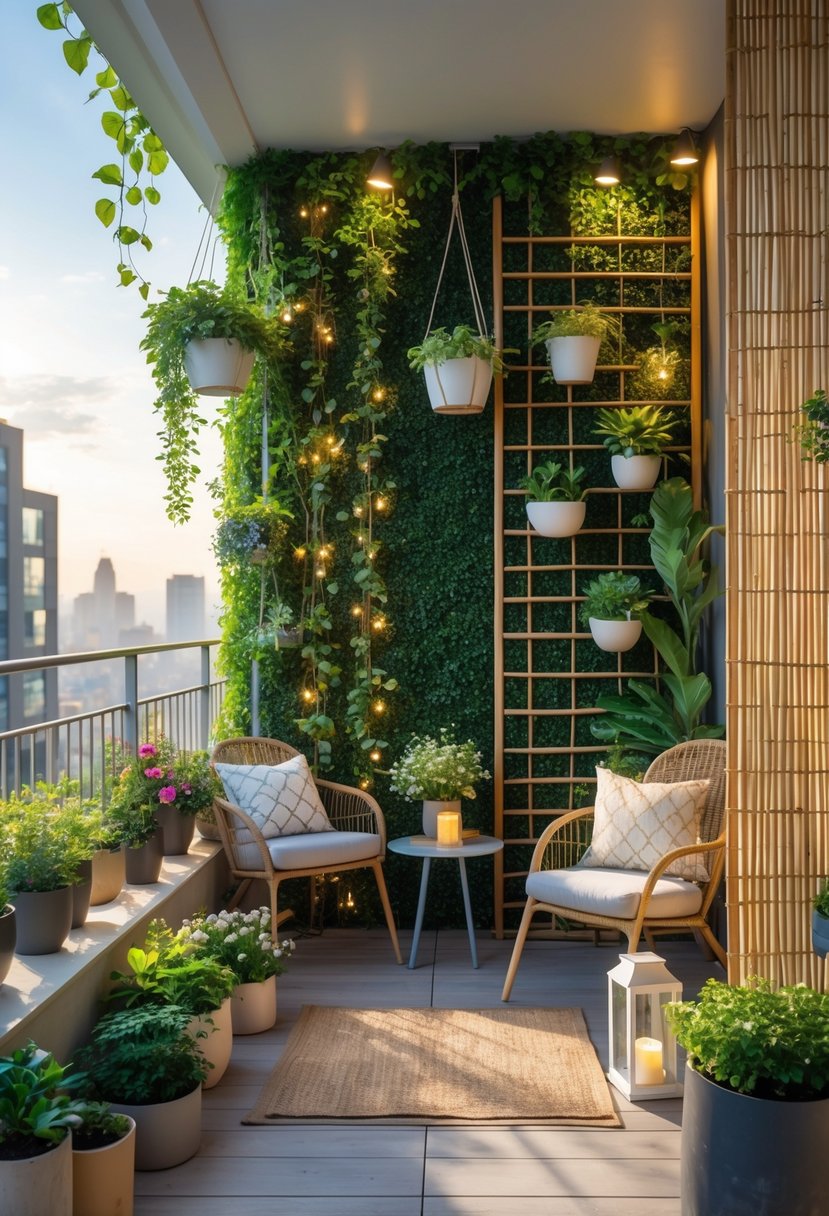
Balcony privacy ideas offer practical ways to block unwanted views while enhancing the look and feel of the space. There are options suited for different sizes, styles, and budgets, making it possible for anyone to find a solution that fits their needs.
1) Install bamboo or reed privacy screens
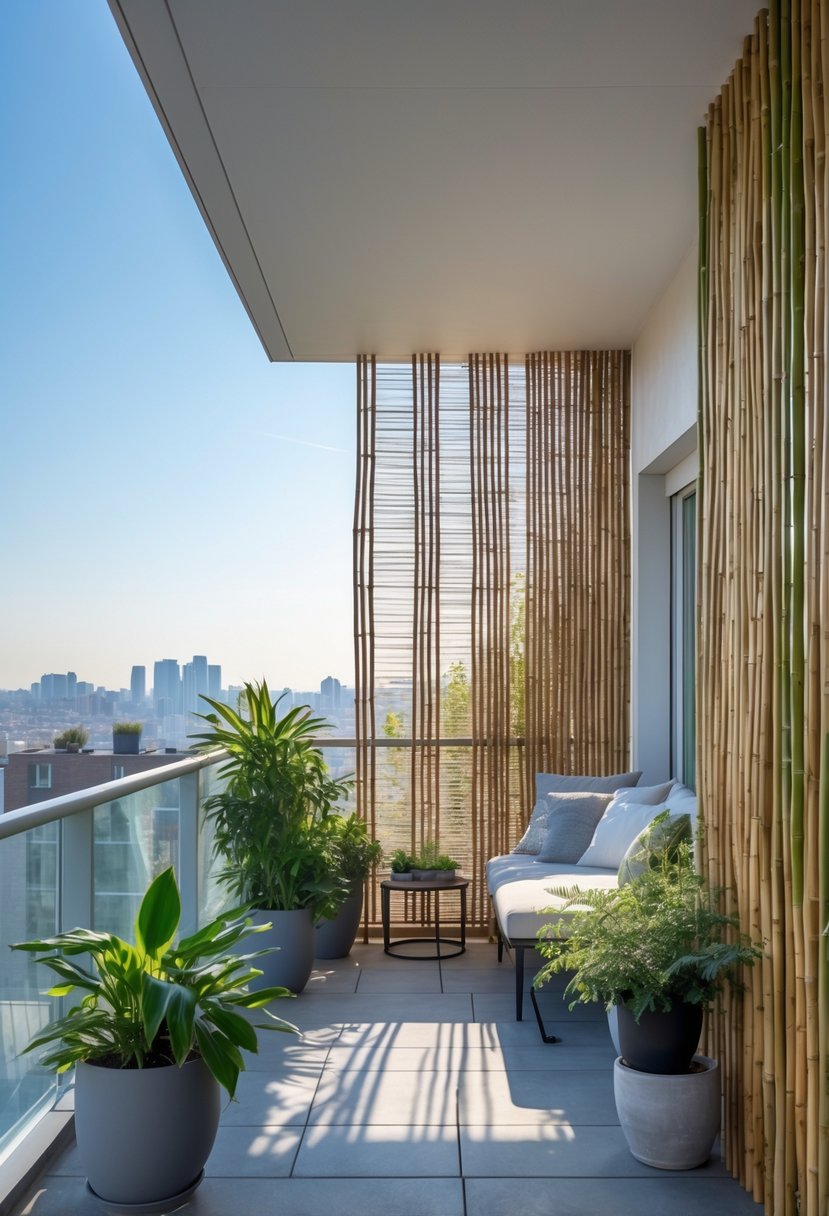
They are simple to install and lightweight. Bamboo and reed screens offer a natural look that fits many balcony styles.
These screens provide privacy and can also reduce sun exposure, helping to keep the space cooler. They are an affordable option that works well for many people.
2) Use outdoor curtains with weather-resistant fabric

Outdoor curtains made from weather-resistant fabric help protect a balcony from wind and rain. They provide privacy while standing up to sun and moisture without damage.
These curtains are easy to hang with rods or hooks and come in many colors and patterns. They are a practical way to add both style and function to outdoor spaces.
3) Add tall potted plants like bamboo or ficus

Tall potted plants such as bamboo and ficus are good choices for creating privacy on a balcony. They grow quickly and can block views without taking up much floor space.
Bamboo offers a natural screen with dense, vertical growth. Ficus plants provide thick, leafy coverage and can thrive well in pots.
Both plants add greenery and help soften the look of balconies while increasing privacy effectively.
4) Mount lattice panels with climbing ivy

He can attach wooden lattice panels to balcony railings or walls. The lattice creates a frame for climbing ivy to grow. Ivy adds natural cover, improving privacy without blocking air or light.
As the ivy grows through the lattice, it forms a green screen. This method is simple and blends well with outdoor spaces. It also offers a quiet, leafy area on the balcony.
5) Place decorative folding screens
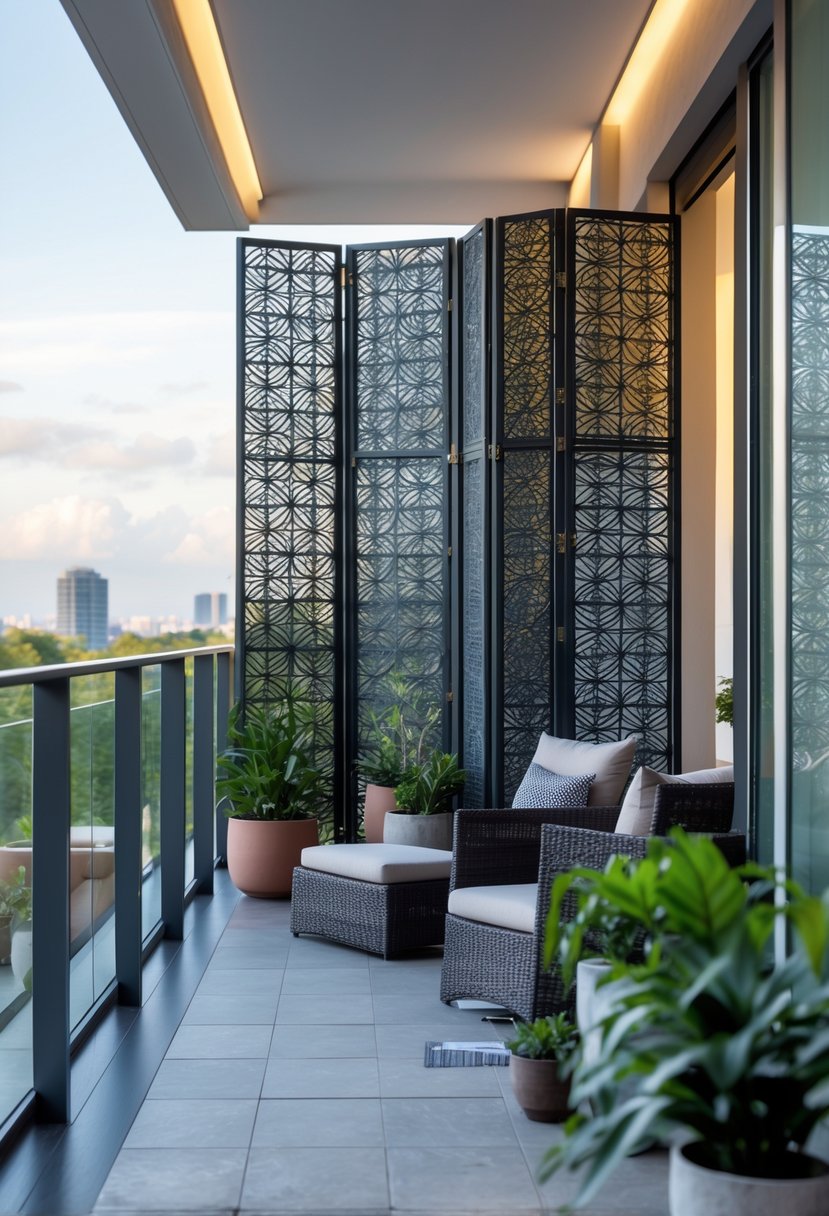
Folding screens are a practical way to add privacy on a balcony. They come in materials like wood, metal, or PVC, fitting different styles and budgets.
These screens can be moved or folded away when not needed. They also add a decorative touch while blocking unwanted views.
6) Hang outdoor roller shades
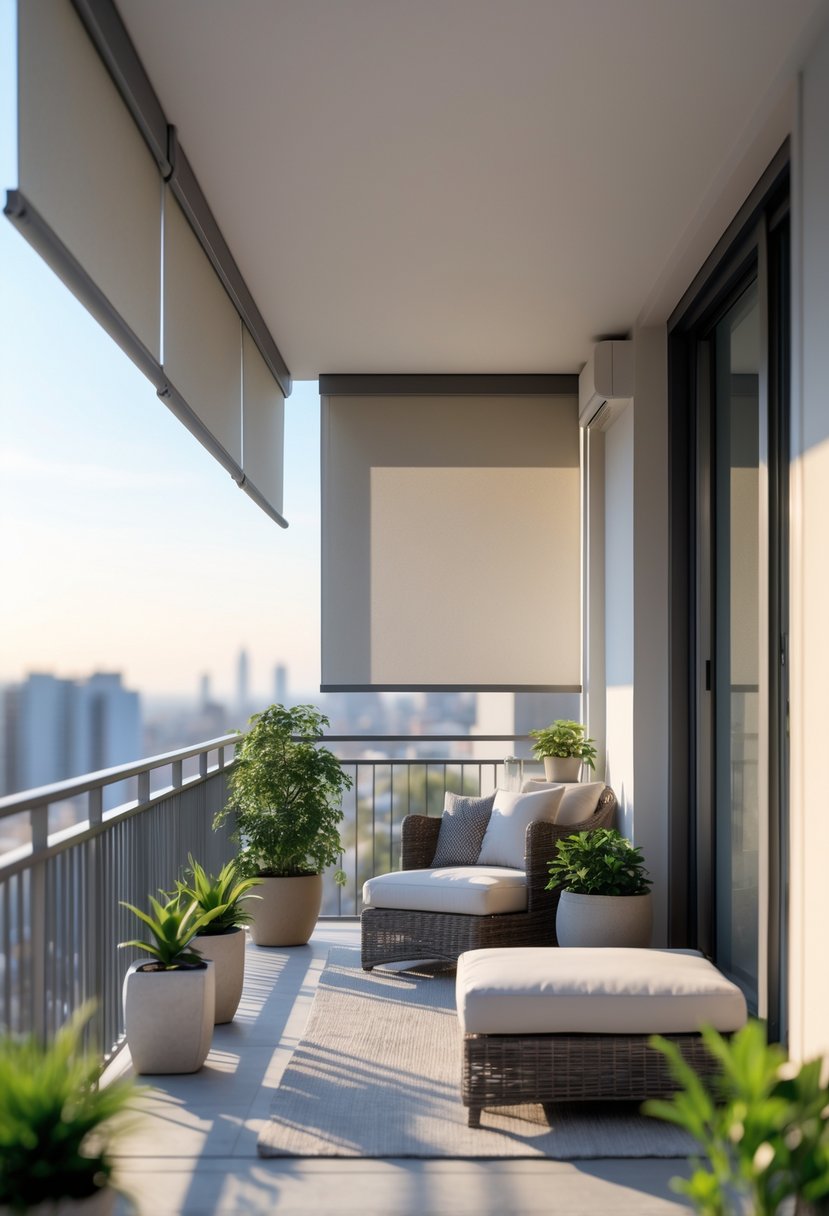
Outdoor roller shades can provide effective privacy on a balcony. They block the view from neighbors while allowing light and air to pass through.
These shades are usually easy to install and operate. They can be rolled up or down depending on the needed privacy or sunlight control.
They also help protect against harsh sun and can improve comfort on the balcony. Many are made from weather-resistant materials to last outdoors.
7) Set up a retractable awning with side panels

A retractable awning with side panels adds privacy to a balcony by blocking the view from neighbors. It also offers protection from the sun and wind.
The panels can be pulled out only when needed, giving flexibility. This setup creates a more comfortable and private outdoor space without permanent walls.
Benefits of Enhancing Balcony Privacy

Adding privacy to a balcony can make the space more comfortable and secure. It limits unwanted views and helps protect against potential risks. These improvements make the balcony a better place to spend time.
Improved Comfort and Relaxation
Privacy barriers help block neighbors’ sightlines, making the balcony feel like a private retreat. This allows people to relax without worrying about being watched.
Using plants, curtains, or screens can also reduce noise from nearby areas. This creates a quieter and more peaceful environment. When a balcony feels safe and calm, it encourages longer, more enjoyable use.
A private balcony space is ideal for reading, meditating, or socializing with friends. It helps occupants disconnect from outside distractions and focus on personal time.
Increased Personal Security
Balcony privacy reduces the chance of strangers seeing valuables or activities inside. This added layer of concealment can deter potential intruders.
Strong physical barriers like screens or panels can also make it harder for someone to climb or reach the balcony. Visibility limits make it less appealing for unwanted visitors.
In some cases, privacy installations improve safety by controlling access points. This can be especially useful in apartments where balconies are near shared spaces or walkways.
Balcony Privacy and Local Regulations

When adding privacy features to a balcony, it is important to know the rules set by the community and local authorities. These rules can affect what types of screens or structures can be installed, and whether special permissions are needed.
Understanding Community Guidelines
Many apartment buildings and neighborhood groups have rules about what changes residents can make to their balconies. These guidelines often limit the height and materials allowed for privacy screens.
Some communities ban certain permanent structures on balconies to keep the building’s appearance uniform. Others may allow temporary or removable solutions like fabric screens, plants, or lightweight panels.
Residents should check their lease, homeowners association (HOA) rules, or condo bylaws before installing anything. Violating guidelines can lead to fines or being required to remove added privacy features.
Permits and Restrictions
Local governments may require permits for certain balcony modifications, especially if changes affect the balcony’s structure. For example, attaching heavy screens or building dividers might need approval.
Building codes might limit the size, material, or installation method of balcony privacy screens. Fire safety is a common concern, so some coverings may be prohibited if they are flammable or block emergency exits.
Before starting, residents should contact their city’s building department or planning office. They can explain what permits are needed and what restrictions apply based on local law. This step helps avoid legal issues and ensures the balcony remains safe and compliant.

